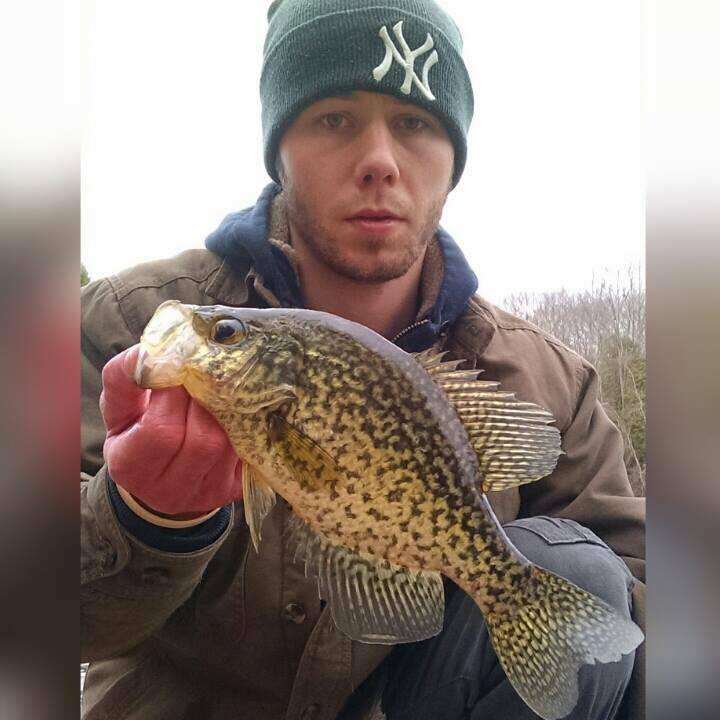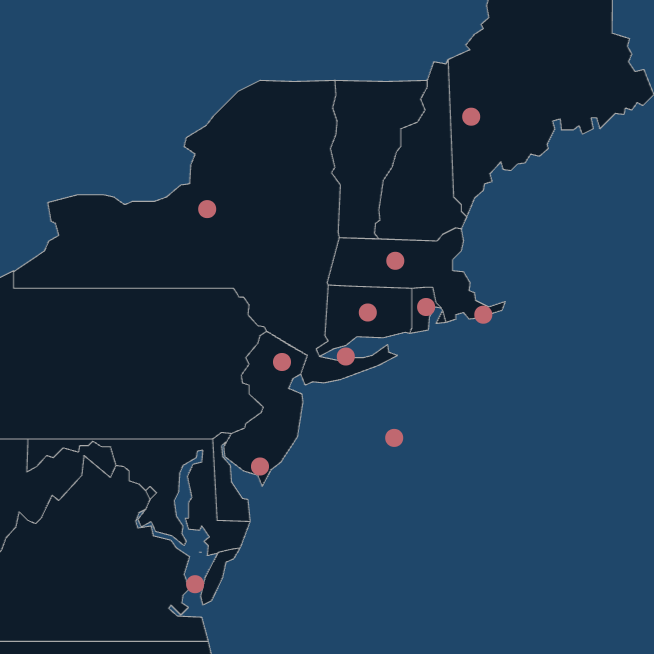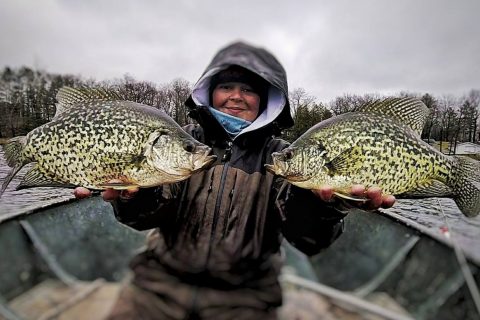Follow Fall Crappie to Deep Water
Fall is one of the best times to fish for crappie in the Northeast, second only to spring. As the water begins to cool, crappie are on the move. The October crappie bite can be excellent, especially for big crappie. The fish feed hard and can be very aggressive. However, as the season progresses into November, you usually have to work a little harder to get into some good fish.
Once the water cools below 50 degrees, crappie will slow down and transition once again. They will leave the 10 to 15-foot depth range and move to their winter habitat, typically deeper basins in the 25 to 35-foot range. You can catch them in this transition on secondary and main lake points right at the edge of feeding flats near the drop-offs. Crappie will move in shallower during low-light periods and back out to deeper areas during the day.

Downsize Baits for Fall Crappie
Crappie can be very particular about what they want and how they want it. In late autumn when the trees are almost bare, the bite can slow down greatly. In just one week, the bite will go from active retrieves with slighter larger baits to having to downsize and work small baits vertically. Downsizing, slowing down, and keeping the presentation in the strike zone longer are three things to do if you want to find success during this time of year.

Crappie, in general, prefer smaller baits, usually around 1 to 2 inches. When fish move out deeper and get picky, micro soft plastics such as Euro Tackle’s Micro Finesse line on smaller tungsten jigs are a go-to for me. Small but heavier jig heads help to get down to schools fast, and they swing hard if you drift a little, which can trigger a strike if jigging alone does not. Finesse jigs (1/16-1/8 ounce) are always in my box too.
Blade baits and small lipless cranks are another solid bet for this time of year. They produce of ton of noise and flash for how small they are. I’ve used Thinfishers from Johnson and Rippin Raps from Rapala. This past year, I’ve also been using the Z-Viber from Euro Tackle. This very small lipless crankbait has an Owner single hook, emits a lot of vibration and noise, has a unique wobble and falls slow because of its light weight (1/6 ounce) which can keep it up for just long enough to entice a tight-lipped slab into striking.

Slow Down your Presentation
When the water gets cold, crappie will be less willing to expend energy. This is why slowing down your presentation becomes important. When the fish are sluggish, work a bait vertically with a slow cadence. Nine times out of ten, the fish will take your bait on the drop, use a bait that has a slow fall rate.
Slowing down the presentation and keeping it in the strike zone goes hand in hand. Crappie tend to feed upward, so present your baits just above them in the water column, and use that slow fall rate to keep the bait fluttering back into their strike zone.

Fishing from a boat gives you an advantage in finding fish away from shore and gives you the ability to vertical jig. Fishing from shore isn’t a waste of time, though, if you have the right gear. I like to fish an 8-foot ultralight rod in deep reservoir settings. Find places where the crappie will hold close to shore, such as drop-offs to deep water. That long, light rod will allow you to get smaller, lighter baits out to where the fish are holding. Consider using a float to achieve a vertical presentation, and keep that slow-falling bait fluttering in the strike zone. It’s a presentation that fall slab crappie can’t resist.
Kyle Quine
Quine’s Fins


I’m new at fishing winter crappie how is the bike in January and what is the best way to catch them in January and what is the best bait to use
I do real well in January and February fishing deeper mouths of creeks connecting to lakes or rivers in 10-20 foot of water. I use a 1/32oz jighead and a 1 inch Berkeley Gulp minnow working it as slowly as possible. Find how deep they’re suspended and then fish vertically or with a bobber to keep the bait in their zone. Good luck.
How to locate crappie in the spring and what use and look for ?
how many inches are the ones on the cover photo?